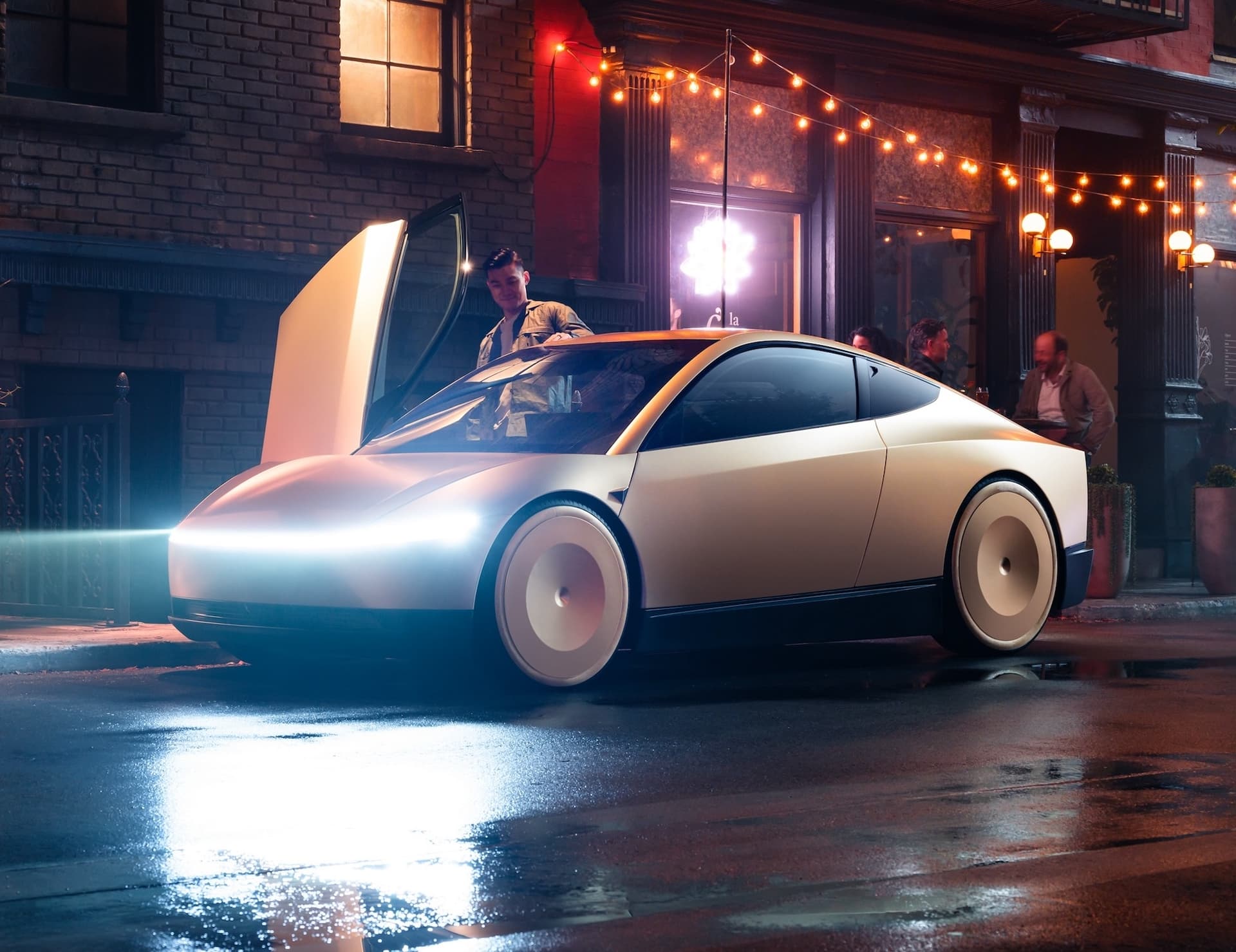Tesla to begin Cybercab production in April, Musk claims | TechCrunch

News Summary
Tesla CEO Elon Musk announced at the company's shareholder meeting on Thursday that production of the Cybercab, an autonomous electric vehicle without pedals or a steering wheel, will begin next April at its factory in Austin, Texas. These comments followed the overwhelming approval of a compensation package for Musk potentially worth up to $1 trillion. Musk stated the Cybercab is specifically designed for unsupervised, full self-driving robotaxi services, optimized for the lowest cost-per-mile, with an ambitious production target of two to three million units annually due to a 10-second cycle time. However, Tesla has yet to demonstrate its vehicles' capability for scalable, unsupervised self-driving. Musk's claims appear to contradict Tesla chairwoman Robyn Denholm's recent remarks that the Cybercab would include a steering wheel and pedals as a backup. Deploying a vehicle like the Cybercab without standard controls on public roads will require approval from federal regulators, a process that has proven lengthy and challenging for other companies like GM's Cruise Origin.
Background
Tesla has a history of making ambitious promises regarding its Full Self-Driving (FSD) technology and future vehicle models, yet its FSD system still largely requires safety oversight. The Cybercab was first unveiled in October 2024 during Tesla's "We, Robot" event, with an initial promise of eventual personal sales. Currently, Tesla launched a bare-bones robotaxi service in June in parts of Austin, utilizing Model Y SUVs equipped with what Musk described as an "unsupervised" version of FSD software. However, a Tesla employee still occupies the passenger seat during these rides. Meanwhile, other companies like Amazon-backed Zoox and Waymo have either sought or obtained exemptions to test their custom-built autonomous vehicles on public roads, but significant regulatory hurdles remain for full commercial operation.
In-Depth AI Insights
What are the underlying strategic motivations behind Musk's aggressive Cybercab production timeline despite significant regulatory and technological hurdles? - This aggressive stance likely aims to create a new growth narrative and market excitement, especially after the recent approval of his massive compensation package, to sustain stock valuation and investor confidence through bold visions. - It could also be a response to intensifying competition in autonomous driving, seeking to establish a first-mover advantage by claiming groundbreaking production capabilities. - Musk might be banking on accelerating regulatory approvals through technological breakthroughs and creating a fait accompli in the market, or betting on the Trump administration's potential push for deregulation. How does the divergence between Musk's vision and the Tesla chairwoman's comments impact investor confidence and corporate governance? - This public disagreement could raise investor concerns about Tesla's internal decision-making processes and corporate governance transparency, particularly on critical product definitions. - It might be interpreted as Musk's personal vision overriding more cautious board-level considerations, increasing risks in project execution and regulatory compliance. - Such uncertainty could lead the market to view the actual launch and success of Cybercab with skepticism, potentially impacting short-term stock performance. Given the incumbent Trump administration's known stance on deregulation, how might federal regulatory hurdles for truly driverless vehicles evolve, and what are the implications for Tesla's timeline? - While the Trump administration generally favors pro-business and deregulation policies, approvals for autonomous vehicle technology involving public safety—especially vehicles without traditional controls—tend to undergo stringent scrutiny that transcends simple political leanings. Agencies like NHTSA have established safety standards and lengthy exemption processes. - Precedent (e.g., GM's Cruise Origin failure) shows that even in a potentially favorable political climate, approvals for disruptive autonomous vehicles remain "long and sticky." Musk might hope to normalize deployment to soften regulatory attitudes, but this itself is a high-risk strategy that could lead to delays or restricted deployment. - Tesla will likely require more effort and time than anticipated to secure necessary federal approvals, casting significant uncertainty on its goal of producing and rapidly deploying Cybercabs by next April.